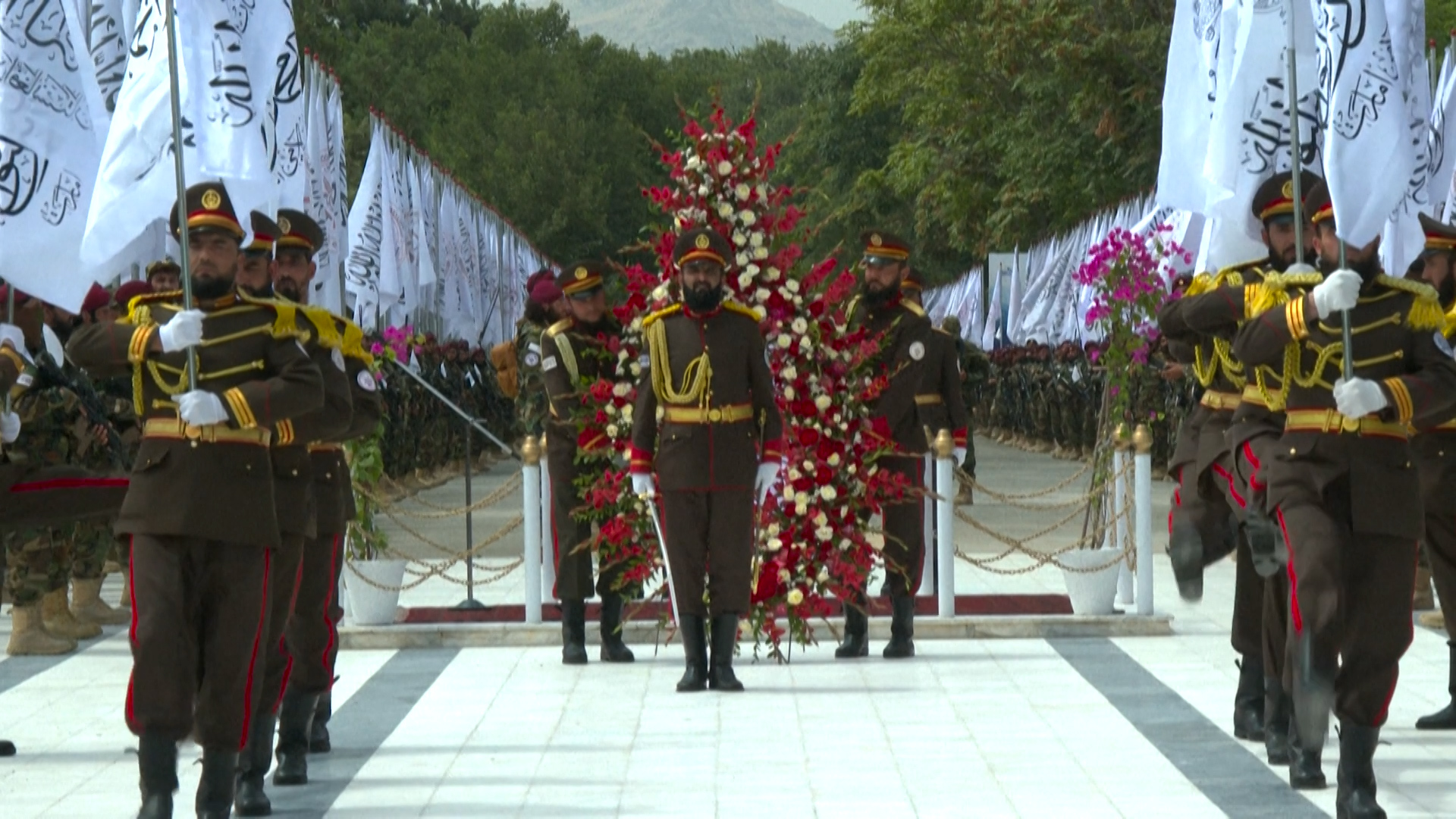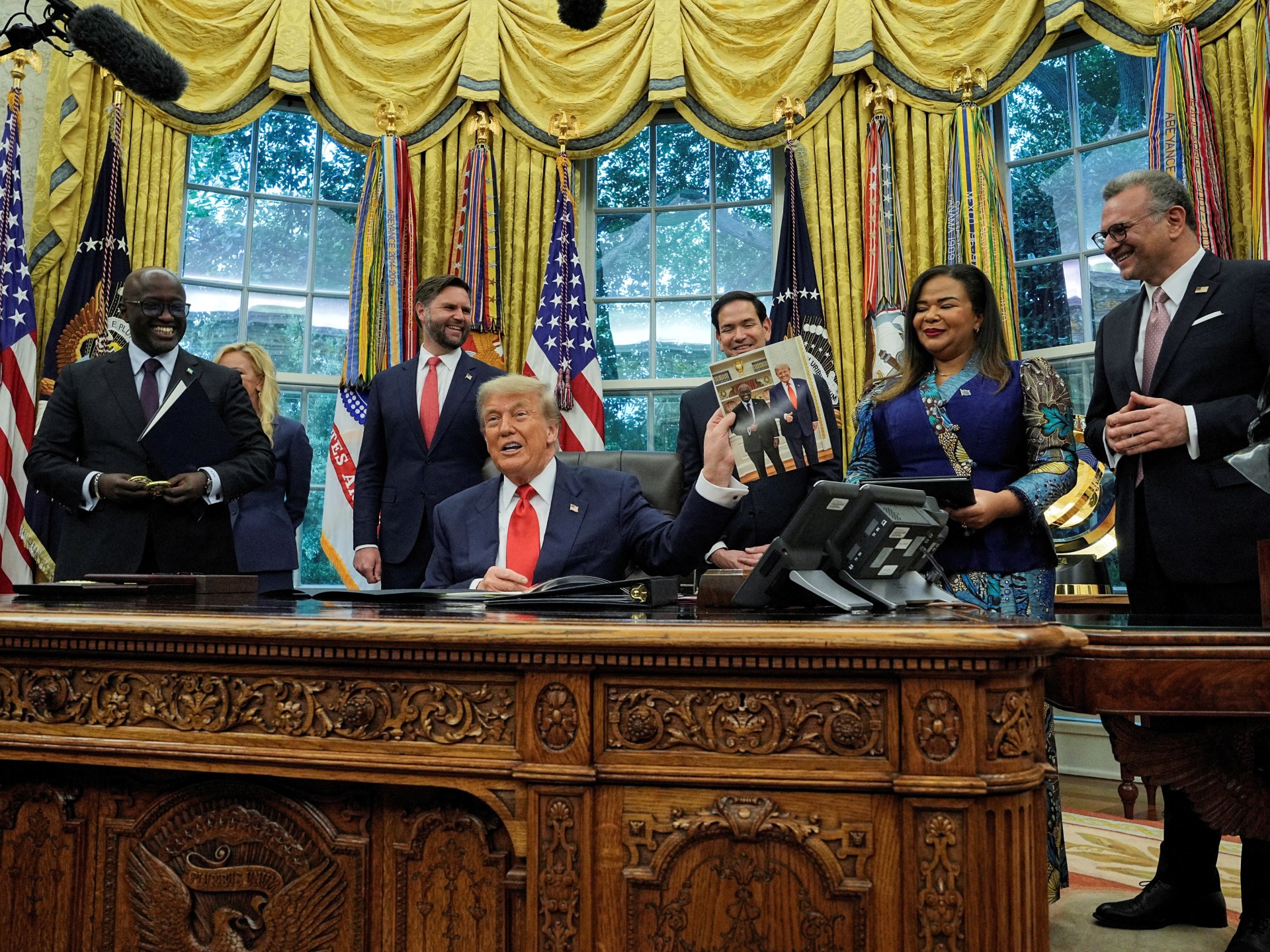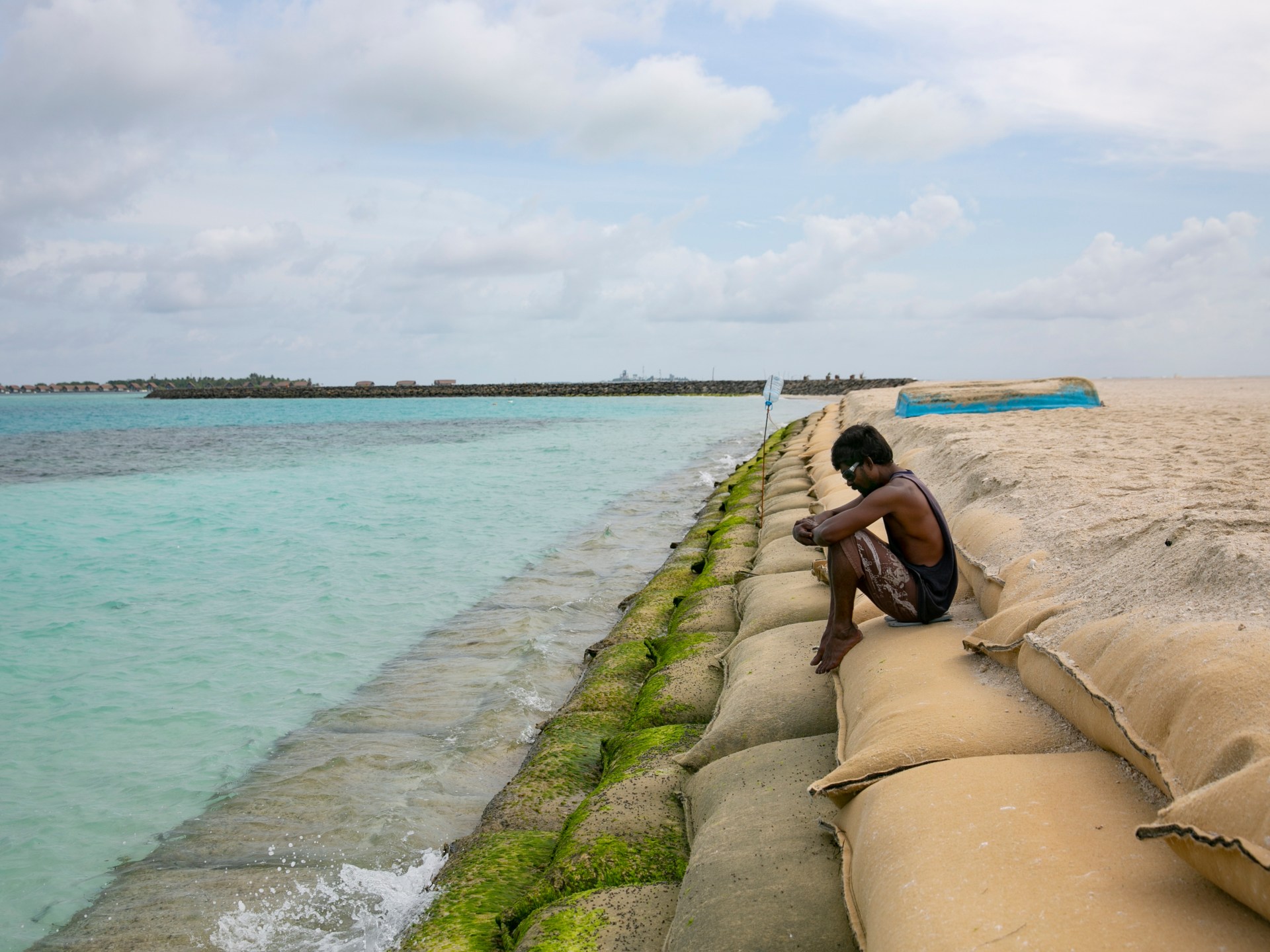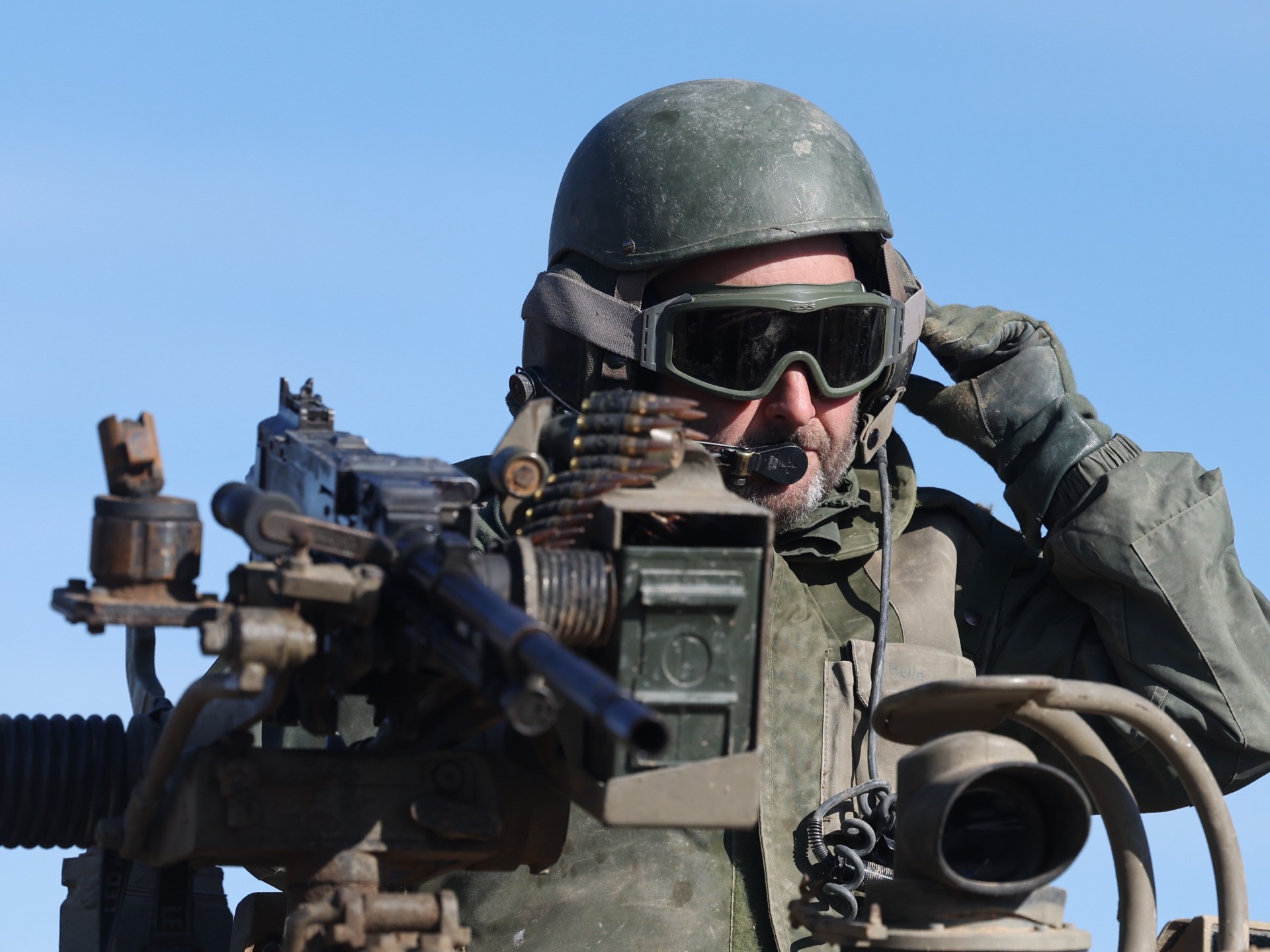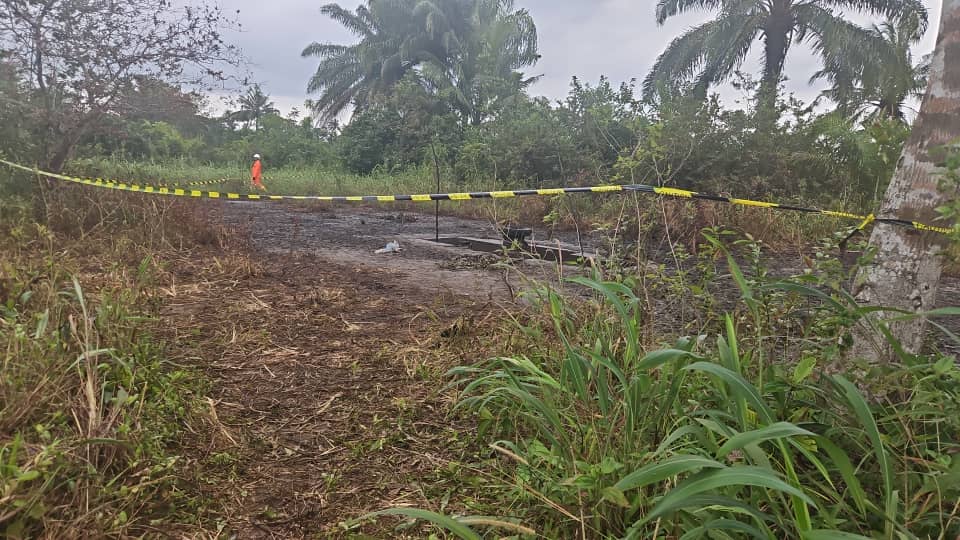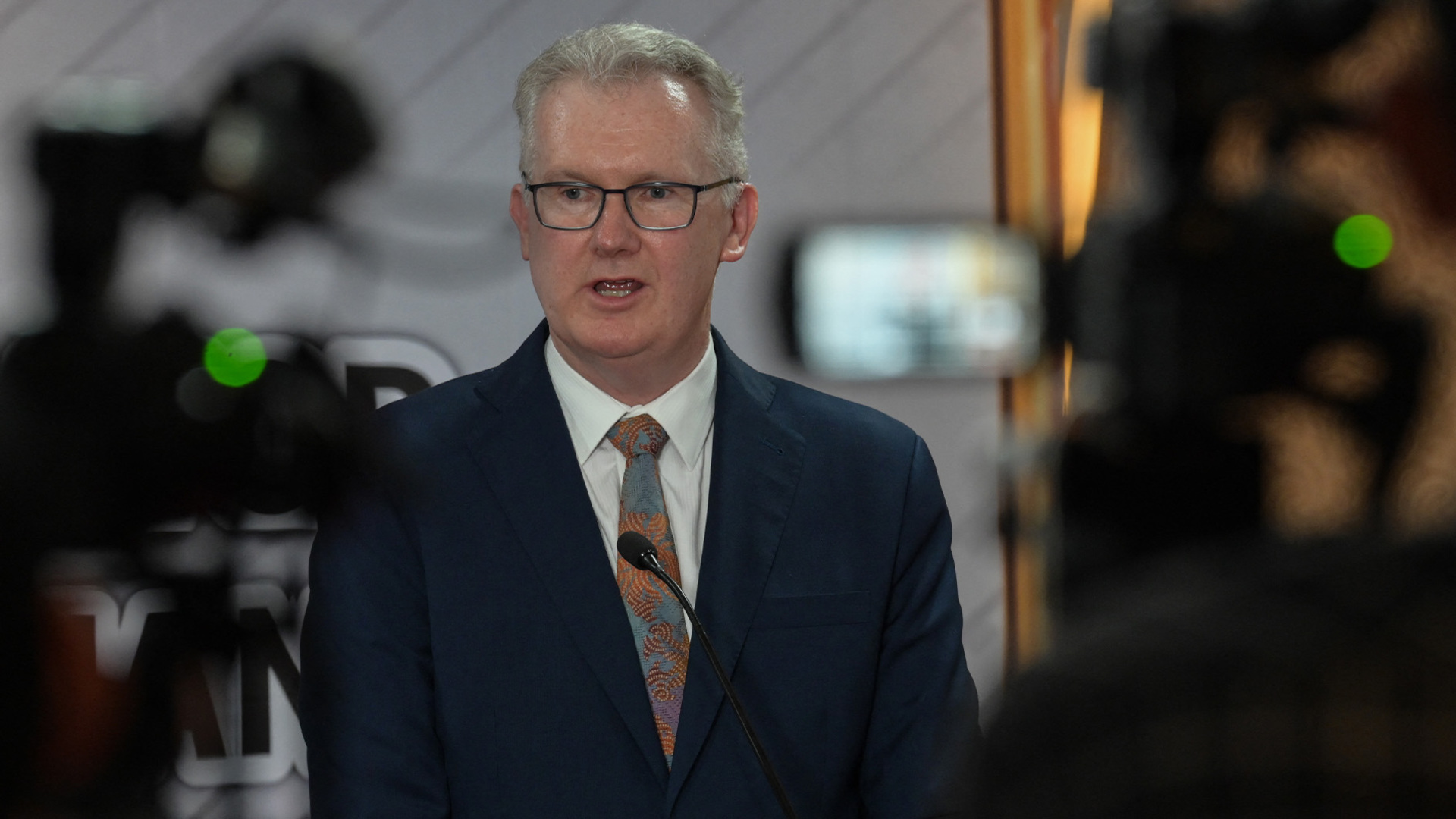Rwanda made the announcement on August 5 that it would accept 250 migrants as part of the Trump administration’s expanding third-country deportation program.
Yolande Makolo, a spokesman for the government in Kigali, stated that Rwanda would still have the option of deciding which deportees to admit for “resettlement.” She continued, “to help them rebuild their lives,” adding that those who were accepted would receive training, care, and housing.
President Donald Trump’s controversial pledge to carry out “the largest deportation operation in American history” includes the program.
Additionally, it is Africa’s third deportation agreement of its kind.
Five convicted criminals from Vietnam, Jamaica, Laos, Cuba, and Yemen were transported to Eswatini, formerly Swaziland, on July 16 by the US.
They are confined to isolated units at the Matsapha Correctional Complex, close to the capital Mbabane, pending eventual repatriation, and are characterized as “barbaric and violent” and rejected by their countries of origin.
Eight murder, sexual assault, and robbery convictions were deported to South Sudan on July 5 for 11 days. Whether a deported person was South Sudanese is reported differently.
The deportations have already sparked a lot of outcry, from Eswatini civil society organizations to South Sudanese attorneys who deny that they are illegal.
Even Eswatini’s government has filed a formal protest with the country’s government.
Meanwhile, foreign minister Yusuf Tuggar claimed that the nation already has “enough problems” and “over 230 million people” and that accepting 300 Venezuelans is against US pressure.
These transactions are unfair.
The US is armed against the most vulnerable by weakening others.
Trump’s established impunity is horrifying. In the name of policy, his family separations in 2019 caused his children to be terrified and alone.
Rwanda, Eswatini, and South Sudan, which are both developing countries that are already struggling to care for their own citizens, are now being sent by the US.
This is the truth about how imperious Africa is, according to Trump’s Victorian perspective, a desolate, unsalvageable continent that is deserving of respect or equal partnership. His perspective echoes a Western custom that was exemplified in Conrad’s Heart of Darkness, where the characters of Africa are portrayed as “dark” and “primeval,” a land viewed as oppressive and violent, and its people depicted as incapable of understanding, feeling, or caring.
That’s not who we are, exactly.
Yes, there are challenges in Africa.
However, we don’t convert the underprivileged into pawns or use exile as a policy. Our unbreakable humanity is unquestionable.
Uganda is the largest refugee-hosting nation in Africa at 1.7 million refugees today, which is the largest number in the region. This figure is higher than the current total refugee populations in the UK, France, and Belgium under UNHCR’s purview.
Asylum seekers and refugees must bear a far greater burden on Europe.
These deportation agreements between third countries are not reputable.
They represent rebirth of colonialism.
When Africa still bleeds from the wounds of the West’s civil war, civic unrest in the eastern Democratic Republic of Congo, environmental destruction in the Delta, and the persistence of French monetary imperialism through the CFA, no self-respecting African leader should ever consent to participating in an organized atrocity.
Instead of the old warships, “Uncle Sam” now intends to transport both convicted criminals and desperate asylum seekers to Africa’s shores. Both groups in the US deserve assistance from home, where offender rehabilitation is extensive and where vulnerable people can find safe haven.
Europe may be the only choice if not.
Let the heat strike the empire’s architects.
Let Washington’s powerful, politically awkward allies bear the burden for good.
With per capita incomes that are only a fraction of those of their former colonial rulers in Europe, Rwanda, Eswatini, and South Sudan rank among the poorest in the world. It is absurd to expect them to bear the burden of America’s deporteees.
Gaston Nievas and Thomas Piketty’s study Unequal Exchange and North-South Relations, published in May 2025, examined the accumulation of foreign wealth over the course of more than two centuries. It demonstrates how colonial transfers, artificially low commodity prices, forced labor, and exploitation contributed to Europe’s development by 1914, demonstrating how European powers were already a source of nearly 140 percent of GDP.
Global inequality is still being driven by colonial plunder, from Juba to Kigali.
It is unacceptable to accept a return to the systemic brutalities that were unleashed following the disastrous Berlin Conference of 1885, during which European powers carved up Africa.
Sending America’s cast-offs to Africa is colonial exploitation repackaged for today, regardless of what Rwandan, South Sudanese, or Eswatini officials make in public.
This approach is not novel.
Many European colonies were converted to offshore extraction facilities and dumping grounds as early as the 19th century. Convicts and political exiles were exiled from countries like Gabon and Djibouti, where France is still a part of the world. Spain’s deportees from Cuba were detained on Bioko Island in Equatorial Guinea as a penal settlement.
Africa and the Americas have been dealt a fresh blow by the US, who has revived that same imperial entitlement. Venezuela, Mexico, El Salvador, Guatemala, Honduras, Nicaragua, and Haiti, which are the most feared countries in the US because of centuries of US imperial dominance and colonialism, are the most frequent visitors.
These nations exhibit the continuing effects of migration-promoting colonial legacies and geopolitical meddling.
However, both Europe and the West deny and denounce the repercussions of its past and present crimes.
Through centuries of colonial exploitation, Europe has undoubtedly prospered. For instance, the Netherlands, France, Belgium, and the UK have impressive prison rehabilitation programs, as well as robust welfare systems, public health networks, and colonial-era-buildings.
Deportees can be taken into custody if they have both the resources and the institutions.
They also possess the record.
In wars that are widely regarded as violating international law, these same powers have eagerly joined the US in attacking and destabilizing sovereign states across Africa, as well as Iraq, Afghanistan, and Libya.
Every intervention has caused new waves of people fleeing the chaos that Western armies created: powerless people who the West openly ignores or despises.
In contrast, Africa abides by the UN Charter and adheres to the rules. Even though we are bound by colonial debt to maintain our dependence, we respect international law, respect international law, and work for peace.
Africa bears the brunt of the consequences even though Europe and Africa both break the law.
The level of hypocrisy is astounding.
We won’t finance, legitimize, or leave the empire’s crimes behind.
We hardly ever have any influence over our own destiny. Our economies are under the control of the IMF and the World Bank. Old hierarchies are being enforced by the UN Security Council. Africans who are left behind are impoverished and starving because the G7 guards the West’s interests over us. The West continues to ingrain on the lives of people in Africa and the Americas as a result of structural oppression.
But we won’t be involved in any crimes.
We’ll keep our silence.
In the Global South, policies and interventions from Western countries cause instability, displacement, and poverty.
Let’s send detainees to those who built this system of oppression and still make money from it if the US insists on doing so.
The West must beware of its spoils.
Include Africa in it.
Send Europe to the deportees of Trump.
